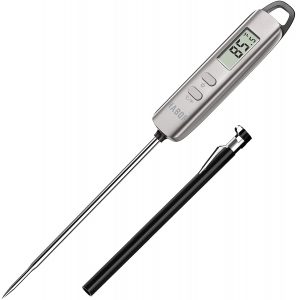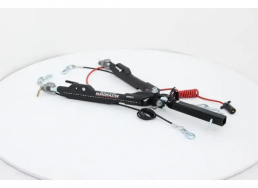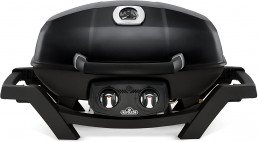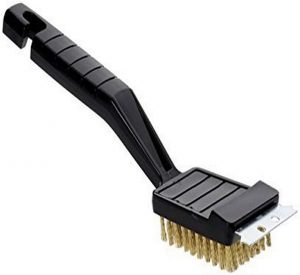Blue Ox vs Roadmaster: Comparing Tow Bars and Other Alternatives
When it comes to towing a vehicle behind your RV, having a reliable tow bar is essential. Two of the most popular brands on the market are Blue Ox and Roadmaster, but which one is right for you? In this article, we'll compare the two brands and look at some other alternatives to help you find the perfect tow bar for your needs.
Blue Ox Tow Bars Blue Ox is a well-known brand of tow bars, with over 90 years of experience in the industry. Their tow bars are designed to be easy to use and maintain, and they offer a range of options to fit different needs. Some popular Blue Ox tow bars include:
- The Blue Ox Alpha Tow Bar, designed for use with towed vehicles up to 6,500 pounds. It's made with aircraft-grade aluminum and features rubber boots to protect against road grime.
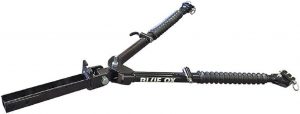
- The Blue Ox Avail Tow Bar, a heavy-duty option designed for use with towed vehicles up to 10,000 pounds. It features a longer and wider design than many other tow bars, making it easier to connect to your RV and towed vehicle.

Roadmaster Tow Bars Roadmaster is another popular brand of tow bars, known for their high-quality and easy-to-use products. They offer a range of options to fit different needs and budgets. Some popular Roadmaster tow bars include:
- The Roadmaster Falcon All-Terrain Tow Bar, designed for use with towed vehicles up to 6,000 pounds. It features a unique design that allows it to be used on uneven terrain, making it a great choice for RVers who like to explore off the beaten path.

- The Roadmaster Sterling All-Terrain Tow Bar, a heavy-duty option designed for use with towed vehicles up to 8,000 pounds. It features a non-binding design that allows for easy disconnects, and it can be used on uneven terrain.

Other Alternatives While Blue Ox and Roadmaster are two of the most popular brands of tow bars, there are plenty of other alternatives on the market. Some other options to consider include:
- Demco Tow Bars - Demco is a lesser-known brand of tow bars, but they offer a range of high-quality options that are worth considering.

- CURT Tow Bars - CURT is a well-known brand in the towing industry, and they offer a range of affordable tow bars that are designed to be easy to use and maintain.

- Reese Towpower Tow Bars - Reese is another popular brand of tow bars, known for their durability and reliability.

Choosing the Right Tow Bar When choosing a tow bar, there are several factors to consider. You'll need to think about the weight of your towed vehicle, the terrain you'll be driving on, and your budget. It's also important to consider the ease of use and maintenance of each tow bar.
In conclusion, finding the right tow bar is an important part of towing a vehicle behind your RV. Whether you opt for a Blue Ox or Roadmaster tow bar, or another alternative, make sure you choose a high-quality product that's designed to meet your specific needs. By taking the time to choose the right tow bar, you can ensure that your vehicle is safe and secure while on the road, and that your towing experience is as hassle-free as possible.
Grilling on the Road? Heck Yeah!
One thing we loved to do in our sticks and bricks was grilling - at least once a week we would fire up the Weber and make chicken and/or steak. Since we try to eat healthy and aren't exactly world-class chefs, we tend to cook a lot of chicken and use it for our dinners throughout the week. As you can see, we were used to a BIG grill for this task:
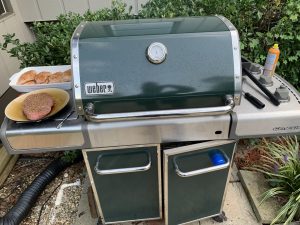
The Weber Genesis is a beast of a grill. Ours lasted 15 years - we replaced the flavor bars twice and maybe cleaned it a handful of times (probably should have been more). The only complaint was the rusting of the lower parts behind those doors. Because of that, we had to sell it for parts for $40 instead of getting at least $200 on Craigslist (these are $1,000 grills!).
Being in a large 45 ft coach gives us some flexibility in the size of grill we can take - while we looked at smaller options, we really wanted to be able to cook at least 6-8 chicken breasts if possible. Either for meal prep or if we have a party and want to get a lot of meat done was a priority!
We did have our sights set on another Weber - our last stood the test of time, and that is rare in the world of junk grills that fall apart. We narrowed our choices down to two contenders:
Weber Q2200 Portable Grill

The Weber Q2200 definitely fit the bill. It has 280 square inches of cooking space and 12K BTU of cooking power. We also liked the side shelves, especially if we didn't have a great location to put the grill at our campsite. We would expect to get good service from this grill. Unfortunately the grill had a couple downsides for us:
- It is set up for using small canisters, and we prefer to use a standard LP tank (far cheaper! You have to buy a LP tank adapter to use the bigger tank, at additional cost.
- There is only one larger burner on this grill - if you want to control the temperature of each side you are out of luck. We do this on a regular basis - running one side at the highest setting for the steak and the other side around 350 for the chicken. We loved the ability to do this with our Genesis. At the end of the day, this swayed us to getting one of these:
Napoleon TravelQ Pro 285 Gas Grill
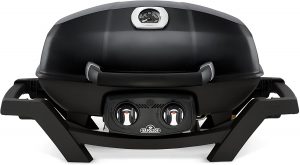
After doing a lot of research, we found a worthy competitor to Weber - the Napoleon TravelQ Pro 285. Similar in size and capability as the Weber, with one critical difference - two burners and more control over the temperature. Although made in China (as is most of Weber now), they clearly use higher quality components than a lot of the other manufacturers. Another bonus - the Napoleon Pro 285 is already set up for a big LP tank right out of the box, so no extra hose to buy. Of course, we will have to buy a different adapter if we do choose to use small tanks (if we took it tent camping for example). The only bummer so far is the lack of side tables - Not sure if that will matter, as they are pretty small (at least compared to the Genesis we were used to).
How Do we Clean It?
One thing we noticed, once we read the directions for the Napoleon (that's a first!) was a need for a brass grill cleaning brush. We believe that is because of the ceramic coating. If you go to the average Walmart, every brush is pretty much stainless steel. So we found a good option on Amazon in the Rubbermaid brass grill brush.
What Other Accessories Can We Not Do Without?
For us, grilling would be impossible without a decent thermometer. We have been through a few, and have settled on this one from Amazon - the Habor 022 meat thermometer. It finds the temp quickly, the reading stays stable, and it seems pretty accurate.
